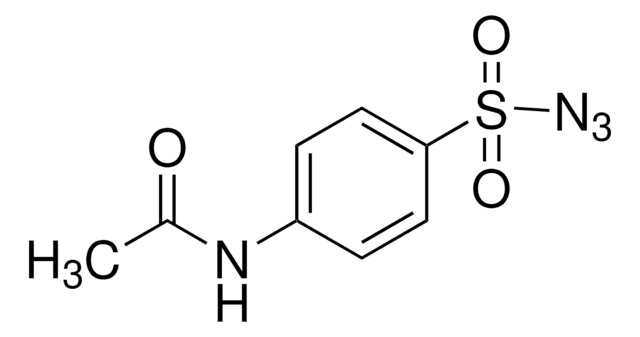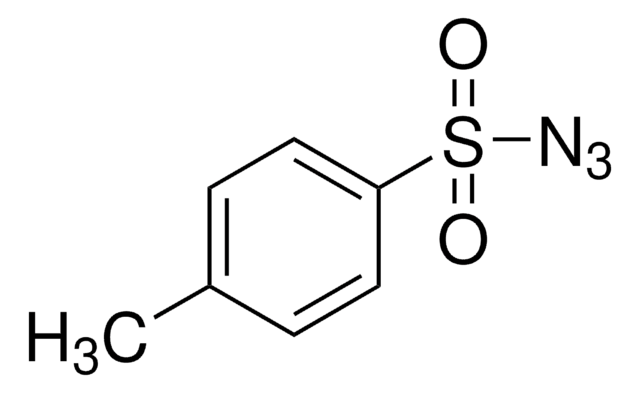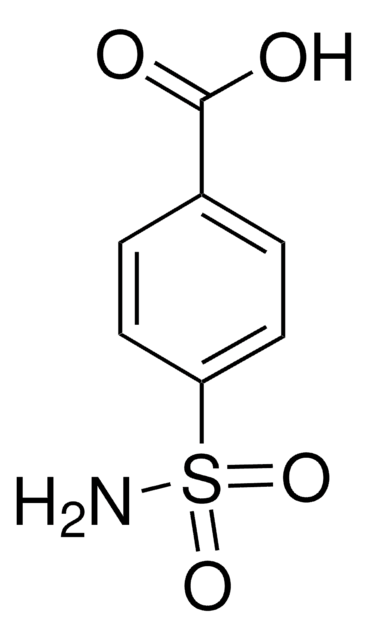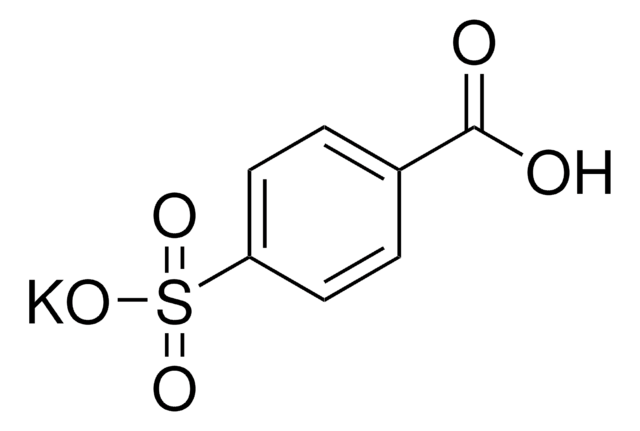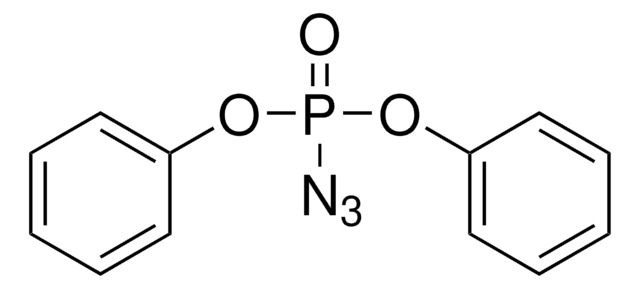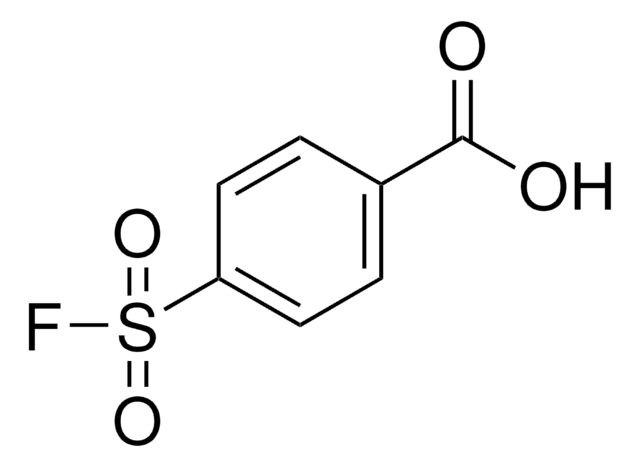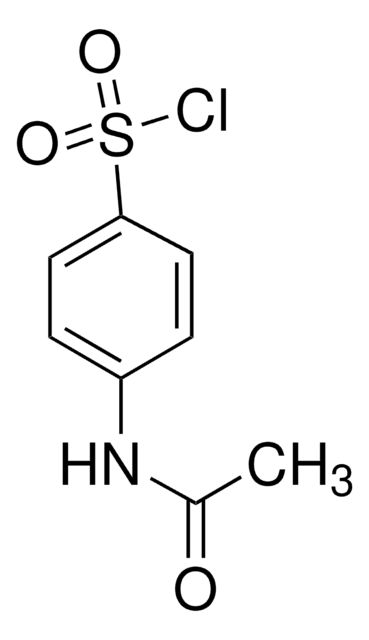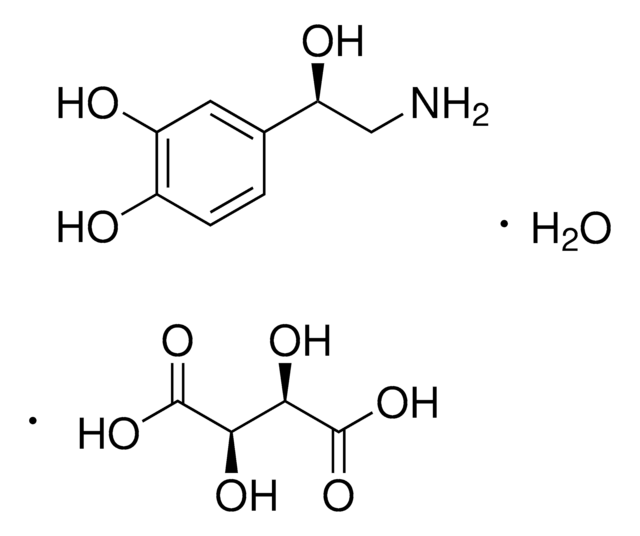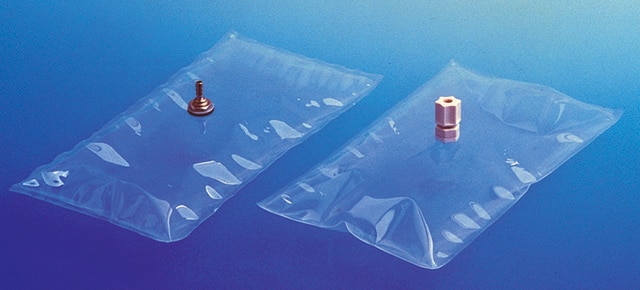340138
4-Carboxybenzenesulfonazide
97%
Synonym(s):
4-(Azidosulfonyl)benzoic acid
About This Item
Recommended Products
Quality Level
assay
97%
reaction suitability
reaction type: click chemistry
mp
180 °C (dec.) (lit.)
storage temp.
2-8°C
SMILES string
OC(=O)c1ccc(cc1)S(=O)(=O)N=[N+]=[N-]
InChI
1S/C7H5N3O4S/c8-9-10-15(13,14)6-3-1-5(2-4-6)7(11)12/h1-4H,(H,11,12)
InChI key
OWULJVXJAZBQLL-UHFFFAOYSA-N
Related Categories
Application
Synthesis of anti-inflammatory agents
Azide amidation
Reactions of thio acids with azides
Chemoselective sodium borohydride reduction of azides in water
Reagent for:
Photo-Stevens rearrangement
Cobalt-catalyzed synthesis of tertiary azides
signalword
Warning
hcodes
Hazard Classifications
Eye Irrit. 2 - Skin Irrit. 2 - STOT SE 3
target_organs
Respiratory system
Storage Class
11 - Combustible Solids
wgk_germany
WGK 3
flash_point_f
Not applicable
flash_point_c
Not applicable
ppe
dust mask type N95 (US), Eyeshields, Gloves
Certificates of Analysis (COA)
Search for Certificates of Analysis (COA) by entering the products Lot/Batch Number. Lot and Batch Numbers can be found on a product’s label following the words ‘Lot’ or ‘Batch’.
Already Own This Product?
Find documentation for the products that you have recently purchased in the Document Library.
Customers Also Viewed
Articles
The chemistry of organoazides is exceedingly rich, since the azide functionality reacts with electrophiles, nucleophiles, and dipolarophiles, with or without the extrusion of dinitrogen. Common place transformation such as Staudinger reductions or ligations, Cu(I)-catalyzed Huisgen cycloadditions (of the “click” reaction family), Curtius or Schmidt rearrangents, nitrene reactions, or imine formation via aza-Wittig reactions all necessitate organoazide precursors or intermediates
Since the preparation of the first organic azide, phenyl azide, by Peter Griess in 1864 this energy-rich and versatile class of compounds has enjoyed considerable interest.
Our team of scientists has experience in all areas of research including Life Science, Material Science, Chemical Synthesis, Chromatography, Analytical and many others.
Contact Technical Service